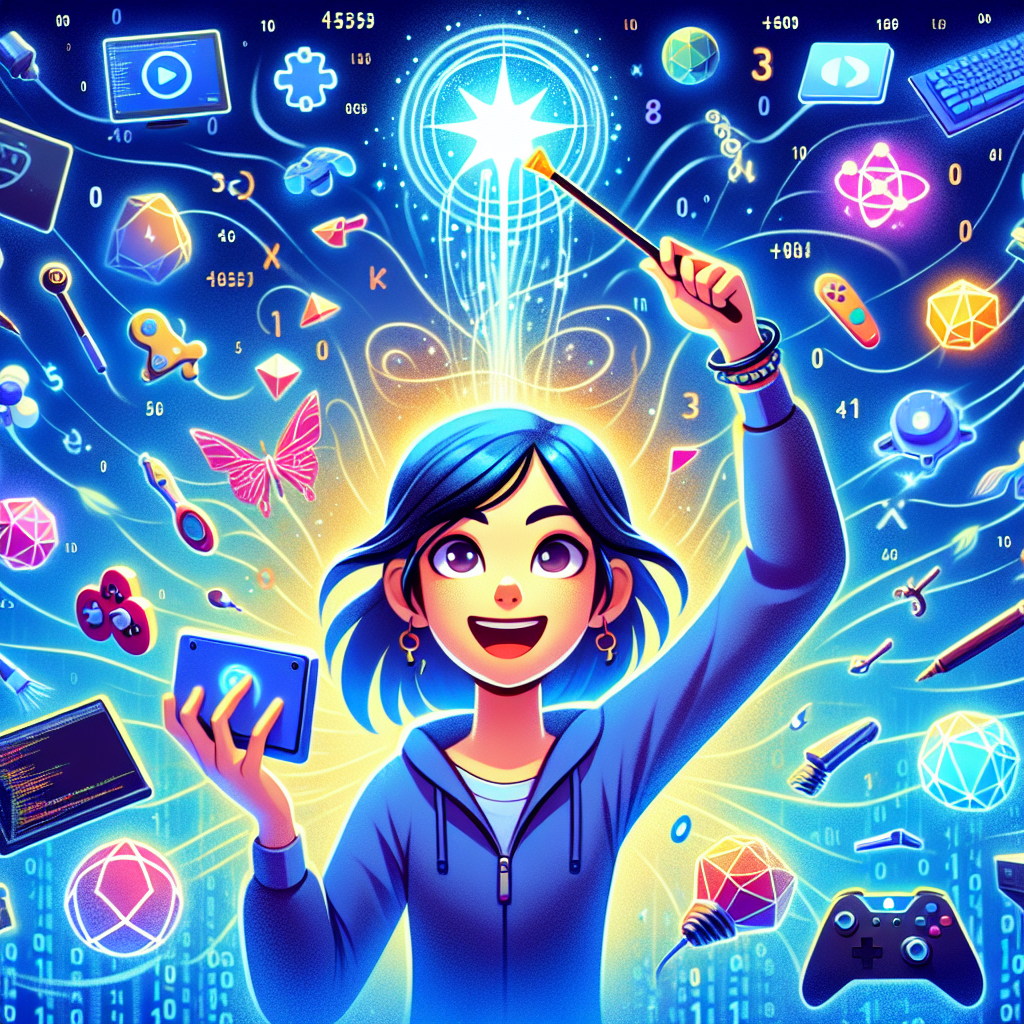Level Up Your Skills: The Best Game Design Tools for Beginners
The world of game design is an exciting frontier where creativity meets technology. With the gaming industry continually expanding, there’s never been a better time for aspiring developers to dive into the realm of game design. Whether you dream of building a simple mobile app or an intricate 3D world, the right tools can help you turn your ideas into reality. In this article, we will explore the best game design tools tailored for beginners, providing a solid foundation for your journey into game development.
1. Unity
Unity is one of the most widely used game engines in the industry and an excellent choice for beginners. It supports both 2D and 3D game development, making it versatile for various types of games. The engine features an intuitive interface and a wealth of tutorials and documentation, perfect for newcomers.
Key Features:
- Cross-platform compatibility: Create games for multiple platforms, including PC, consoles, and mobile devices.
- Asset Store: Access a vast library of pre-made assets and tools to accelerate your development process.
- Community support: Join a thriving community of developers who share tips, assets, and support.
2. Unreal Engine
Another powerhouse in the game development industry, Unreal Engine, is a bit more complex than Unity but offers powerful tools for creating stunning graphics and immersive experiences. It’s particularly good for high-end 3D games and is used by many professional developers.
Key Features:
- Blueprint visual scripting: Allows you to create gameplay mechanics without extensive programming knowledge.
- High-quality graphics: Built-in functionalities for stunning visuals and realistic environments.
- Extensive documentation and tutorials: Learn through a wealth of resources available online.
3. Godot Engine
Godot is an open-source game engine that has gained popularity among beginners due to its user-friendly interface and lightweight nature. It supports both 2D and 3D game development, making it a versatile choice.
Key Features:
- Integrated development environment (IDE): Everything you need is bundled into one program, making it easy to get started.
- GDScript: Godot’s easy-to-learn scripting language, reminiscent of Python, simplifies coding for beginners.
- No royalties or licensing fees: Keep what you earn; Godot is entirely free to use.
4. GameMaker Studio 2
GameMaker Studio 2 is designed specifically for 2D game development and is perfect for beginners interested in developing pixel art games or platformers. Its drag-and-drop interface makes it easy to understand and use.
Key Features:
- Drag-and-drop functionality: Great for those without coding experience, allowing you to create prototypes quickly.
- GameMaker Language (GML): Learn a simple programming language to enhance game functionality as you progress.
- Marketplace: Access a range of assets, scripts, and tools that can cut down your development time.
5. Construct 3
For those who may not want to dive into programming at all, Construct 3 offers a fully visual environment to create 2D games using a system of events and behaviors.
Key Features:
- No coding required: Design games through a visual interface without the need for programming skills.
- Browser-based platform: Accessible from any device with internet connectivity.
- Instant publishing: Easily export your games to a variety of platforms, including HTML5, mobile, and desktop.
6. RPG Maker
If you’re interested in crafting role-playing games, RPG Maker is a beginner-friendly platform that allows you to create story-driven experiences without extensive programming knowledge. It’s particularly popular for indie game development.
Key Features:
- Pre-built assets: Leverage existing graphics, music, and templates to create your game quickly.
- Event-driven design: Create complex narratives and gameplay mechanics using an intuitive event system.
- Community assets and plugins: Access a plethora of community-created resources to enhance your development experience.
7. Twine
For those inclined toward narrative-driven games or interactive storytelling, Twine is an excellent choice. This free tool allows you to construct nonlinear stories and even simple text-based games with ease.
Key Features:
- No programming required: Focus on storytelling without the added complexity of coding.
- HTML & CSS customization: Add unique visual styles to your stories if you have some web design knowledge.
- Access to a supportive community: Tap into resources and forums to improve your narrative design skills.
Conclusion
Embarking on your game design journey is both exciting and challenging, but the right tools can make all the difference. Each of the tools listed above offers unique features that cater to different interests within the realm of game development. Whether you’re drawn to 2D or 3D games, narrative-focused projects or visually stunning graphics, there’s a tool that can help you bring your ideas to life.
As a beginner, the most important step is to start creating. Embrace the learning curve, experiment, and, most importantly, have fun. The gaming world is a playground for your imagination—so level up your skills and start your adventure in game design today!




